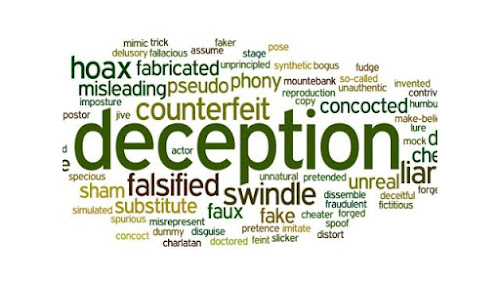Nothing that Amalek possessed, whether human or beast, was to be left alive. With the appearance of being obedient, Saul gathered his army and went on the mission. They attacked and killed every man, woman, infant, and nursing child. Thousands were slain by Saul and his army. However, Saul and the people spared King Agag of Amalek and the best of the sheep, oxen, fatlings, lambs, and all else that was good. Contrary to what God specifically commanded, Saul and the people who were with him probably reasoned, "It's a waste to destroy all this good livestock" (1 Sam. 15:9, 24).
Before Saul had even returned from the battle, God told Samuel Saul had disobeyed. God said He regretted that He had made Saul king. All the thousands Saul did destroy, whether people or sheep, could not make up for the few he had spared. The next morning Saul greeted Samuel with, "Blessed are you of the LORD! I have performed the commandment of the LORD" (1 Sam. 15:13). Saul believed he had kept the commandment of the Lord. Yet, as we'll see later, it is obvious God had a different opinion. Saul's reasoning had deceived him.
This is often the case when we do not obey what God has told us. The New Testament explains: But be doers of the word, and not hearers only, deceiving yourselves. -JAMES 1:22 A deceived person believes he has done what is right or best when actually he is in rebellion. This is especially true of those who repeatedly disobey the Word of God. Their hearts continue to be darkened by reasoning and their deception grows greater. Paul warned Timothy that those in the church who have not obeyed would "grow worse and worse, deceiving and being deceived" (2 Tim. 3:13). Disobedience is accompanied by deception, and both grow worse if they are not confronted. Not only do the disobedient deceive others, but they deceive themselves as well.
The deception: They see themselves as right while in reality they are not. Saul's incident with the livestock was not the first time he had practiced selective obedience. He had been rebuked previously by Samuel for not obeying. He was following a pattern of disobedience. Once this pattern forms it becomes increasingly more difficult to discern truth from error. The magnitude of disobedience grows proportionally as well. But a truly repentant heart will bring deliverance and open the eyes to the deception. God always offers a chance for repentance.
Samuel directly confronted Saul with the evidence of his disobedience: "What then is this bleating of the sheep in my ears, and the lowing of the oxen which I hear?" (1 Sam. 15:14). Saul quickly responded, "They have brought them from the Amalekites; for the people spared the best of the sheep and the oxen, to sacrifice to the LORD your God; and the rest we have utterly destroyed" (1 Sam. 15:15). Rather than admit his mistake, Saul shifted the blame from himself to the people. "I wanted to obey," he implied, "but the people compelled me." He had used peer pressure as an excuse for disobeying God's directives (1 Sam. 15:24). An unrepentant heart will divert the blame to others when it is caught in disobedience. It does not take responsibility for its actions.
Saul led the people; they did not lead him. He was not only accountable for his disobedience but for theirs also. He was the one with the authority to lead and the instructions on how to do it. Listen carefully, leaders, because you will give account for the disobedience you allow in those entrusted to your care. Eli, the priest who led Israel for forty years, knew his sons were despising the ordinances of God's temple, yet he did nothing. He gave them a slap-on-the-hand rebuke, but he did not exercise his authority to remove or restrain them. Therefore God decreed, "For I have told him that I will judge his house forever for the iniquity which he knows, because his sons made themselves vile, and he did not restrain them" (1 Sam. 3:13). It was not just his sons, but Eli was judged as well.
So, first Saul blamed the people. Then he pointed out that they spared the animals for a good cause-to sacrifice them as offerings before the Lord. You know Saul is deceived if he thinks that through disobedience he can offer a sacrifice or service to God that would be acceptable. This is a most deceptive form of rebellion. We see it in the life of Cain, the firstborn son of Adam, who also brought a sacrifice that the Lord would not accept. He brought the fruit of his field as an offering to the Lord. We know it was brought forth with much toil because God had earlier cursed the ground (Gen. 3:17-19). Cain had to clear the ground of rocks, stumps, and other debris. Then he plowed and cultivated the soil. He planted, watered, fertilized, and protected his crops. He had put much effort in his service toward God. But it was a sacrifice of his own making, not the one prescribed by God. It represented his service to God in his own strength and ability rather than by obedience.
Working hard does not necessarily mean you are doing what is right. The longer I walk with the Lord, the more I discover that sometimes the busier I am, the less I accomplish. Busyness does not equate to obedience.
My name is Cesar and I’m A Voice in The Desert
#avoiceinthedesert
#vozeneldesierto
www.mywalkwithmycreator.com

No comments:
Post a Comment